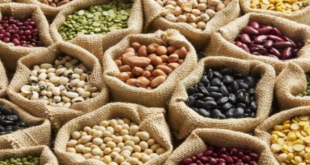The UN Environment Programme (UNEP) Food Waste Index 2024 report revealed that while 783 million people grappled with hunger in 2022, more than 1 billion meals a day were wasted worldwide.

According to the Food Waste Index 2024 report published by the UN Environment Programme (UNEP) on the occasion of the International Zero Waste Day on 30 March, 19 percent of the food produced worldwide in 2022 went to waste.
As of 2022, only 21 countries have included reducing food loss and/or waste in their national climate plans (NDCs). The 2025 NDC revision process offers an important opportunity to increase the climate target by integrating food loss and waste. The report underlines the urgency of addressing food waste at both individual and systemic levels.
Solid baselines and regular measurements are needed for countries to show changes over time. Countries such as Japan and the United Kingdom show that change at scale is possible, with reductions of 31 per cent and 18 per cent respectively, thanks to the implementation of policies and partnerships.

“At this rate, millions of people will go hungry”
UNEP Executive Director Inger Andersen, whose views are included in the report, said: “Food waste is a global tragedy. If food waste around the world continues at this rate, millions of people will go hungry. Not only is this a major development challenge, but the impacts of such unnecessary waste also impose significant costs on climate and nature. The good news is that we know that if countries prioritise this issue, they can significantly reverse food loss and waste, reduce climate impacts and economic losses, and accelerate progress towards global goals.” Andersen called on countries to prevent waste.

Harriet Lamb, CEO of WRAP, a UK-based global NGO that co-produced the report with UNEP, said: “The huge cost of food waste to the environment, society and global economies means we need more coordinated action across continents and supply chains. We support UNEP’s call for more G20 countries to measure food waste and work towards SDG12.3. This is critical to ensure that food feeds people, not landfills. Public-Private Partnerships are one of the key tools delivering results today, but they need support: whether philanthropic, business or government, actors must unite behind programmes that address the enormous impact of food waste on food security, our climate and our wallets.”
 THE GLOBAL WINDOW OF TURKISH FOOD AND AGRICULTURE The Global Window of Turkish Food and Agriculture Sector
THE GLOBAL WINDOW OF TURKISH FOOD AND AGRICULTURE The Global Window of Turkish Food and Agriculture Sector









